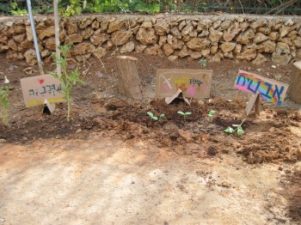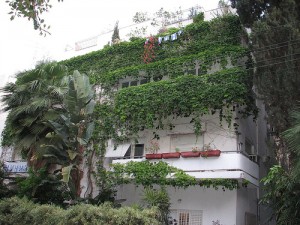How does mindfulness help with gardening? It turns out that mindfulness is not reserved for meditation, yoga, or breathing exercises. To understand how gardening can help mindfulness, we should delve into what mindfulness is and what it isn’t.
What is Mindfulness?
Let’s clarify some things about mindfulness. Yoga and meditation are not interchangeable with mindfulness, though they may help you achieve it.
Mindfulness is the practice of being in the moment. It involves having a clear mind and focusing on your present state in all of your senses. Some people may achieve mindfulness with yoga or breathing exercises. If that’s you, great! If it isn’t, it’s not a big deal. There are many ways to achieve this level of focus and presence.
Mindfulness has become a hot topic because, as a society, we’ve gotten accustomed to staring at screens on our phones. Many people have a hard time switching their minds off and don’t know how to focus on a task. Mindfulness is a call back to a simpler time when we didn’t have phones to be glued to and did things. In the past, it wasn’t even called mindfulness. People just did something.
Practicing Mindfulness
Gardening is a great way to practice mindfulness without going too far. Here are 5 benefits to practice mindfulness while tending to your garden.
Appreciation
Before you start gardening, take a moment to observe your garden. The work you put into tending to it reaps its intrinsic rewards. Use this moment to get into a clear mindset and push out other thoughts.
Many people see what they don’t have but forget to acknowledge what they do have. Practicing appreciation can help you embrace the time to garden and can also help you show appreciation to loved ones and yourself.
Use your senses
While you’re in your garden, take the time to explore every sense you experience. What does the dirt feel like in your hands? Are there any songbirds or insects you hear? Can you taste anything in the air when you take a breath? What shades of color do you see? Does it have a sweet aroma or earthy smell?
This exercise helps to center yourself and fully embrace your moment through your senses. Studies have shown that this exercise is also effective with anxiety disorders or PTSD.
Study a Flower
Take a moment to observe a flower or plant. Is there anything you see that you hadn’t noticed before? Get up close to it. What can you tell about the flower from being up close? Do its leaves have any blemishes? Are there any signs of insects chewing through leaves? Write down what you notice in a journal and compare.
This awareness helps build focus and heightens your senses. Having awareness is a valuable skill in any setting and may help you discover things in your every day that had blocked out or forgotten.
Minimize Screen Time
It can be tempting to pull out your phone and snap a few pictures while gardening, especially if your plants have started to blossom. Try to resist the temptation until after you’ve finished gardening.
Mindfulness is about being fully present in your activity. When we grab our phones and post something, we spend more time finding the best filter and making the picture ready for social media. We can also get sidetracked and begin scrolling. Studies have shown that jumping to our phones while performing a task can rewire the brain to lose focus more easily.
Imagine you’re a master botanist, and your garden is your masterpiece. While you’re in your garden, that’s all that matters. The world will be there waiting for you when you’re finished.
Pruning and Weeding out
Gardening is a metaphor for life. At times, weeds grow wildly in our gardens and take over plots of land. The same can be said about negative thoughts. If unchecked, they can grow in your mind and take up valuable mental space.
Try to visualize pulling weeds as pulling out negative thoughts. Keep in mind that the term negative need not be a static definition. Many emotions can be necessary and shouldn’t always be considered harmful. However, some thoughts serve us, and others don’t. Use gardening to sift through these thoughts and weed out what ideas no longer help you.
Pruning can also be a metaphor for growth. As we mature and become older, some of our beliefs change over time. Maybe we had a difficult childhood that left some invisible scars. Maybe how you thought when you were young changed.
Pruning a plant can symbolize pruning your thoughts for thought processes that no longer serve you. By practicing pruning, you can begin to see what else in your life has outstayed its welcome and can be cut out.
Final Thoughts
Whether you’re just starting or already have a beautiful garden, gardening is a great activity to practice mindfulness every day.




